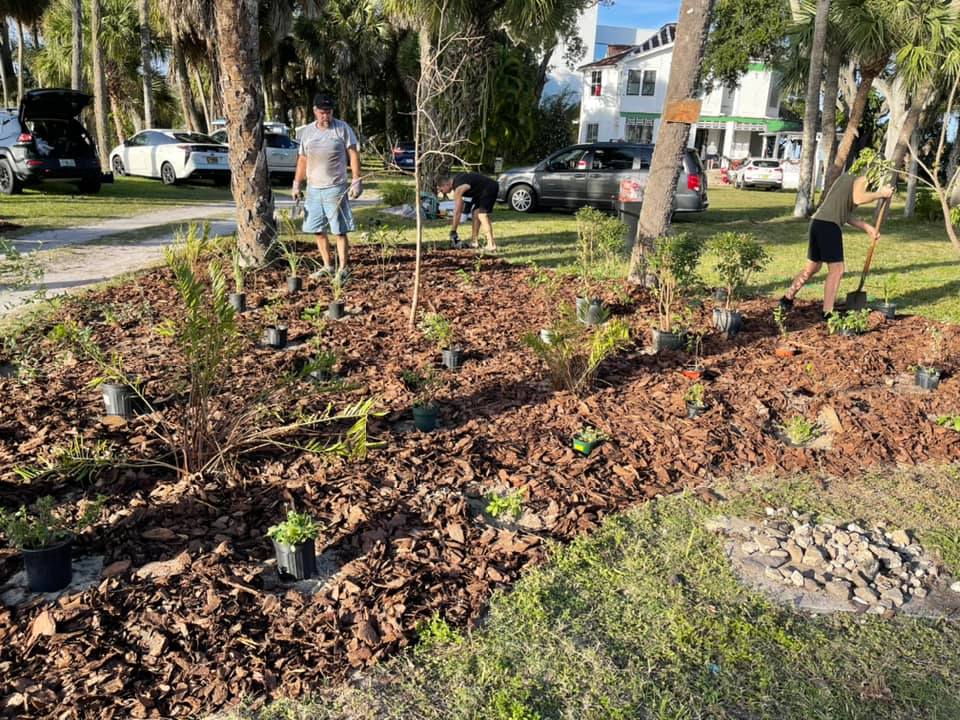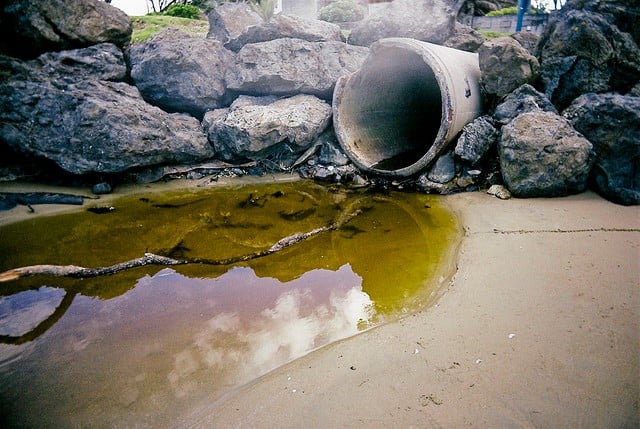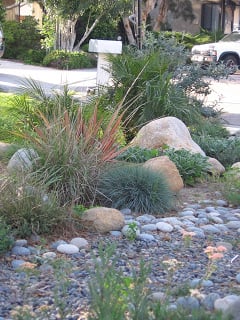
Ocean Friendly Gardens
A Natural Solution...
Ocean Friendly Gardens (OFG) are a natural solution to the problems caused by stormwater and urban runoff. Our chapter’s OFG program is a volunteer-run sustainable landscaping and education program that provides beautiful, inexpensive ways to care for your yards impacting the health of our local waterways and ocean. By applying conservation, permeability and retention (CPR), ocean friendly gardens allow soil to act like a sponge to help restore the helpful functions of watersheds, preventing pollution from reaching the ocean, reducing flooding during storms, pulling carbon from the air and into plants and soil, and creating wildlife habitats.
Beyond The Backyard...
Bio-swales, Golf courses, Living shores and more, Space Coast Surfrider has a variety of projects to help protect clean water.

#1 Source
Stormwater and urban runoff is the #1 source of beach closures and swim advisories. This runoff pollutes our beaches and coastal waterways with bacteria, chemicals, trash, and other debris. Severe flooding can cause sewage infrastructure failures, making recreational waters unsafe for human contact. Inadequate wastewater treatment and traditional landscaping practices that depend on chemicals are also wreaking havoc on coastal and freshwater ecosystems by overloading waterways with nutrients, fueling toxic algae blooms and harming coral reef habitat.
Local Beautiful Landscapes
Our Chapter has created several native gardens in various locations of Brevard County. Take a ride and see the beauty of Florida native plants that are easy to maintain and capture polluted runoff. OFG locations are Satellite Beach City Hall; Historical Home Green Gables off US1; Unitarian Universalist Church of Brevard in West Melbourne; and Crane Creek Reserve Golf Course off of New Haven Blvd. in West Melbourne.

How to Give CPR to Your Garden?
Conservation means limiting water demand and providing a wildlife habitat in your garden.
- Visit a nursery that specializes in native plants.
- Select plants that are climate-appropriate to absorb rainwater and survive during drought periods.
- Plant native plants and grasses that don't need supplemental irrigation while providing food habitat for butterflies, birds and bees.
Permeability is creating healthy, living soil that acts as a sponge to conserve water and filter out pollutants.
- Stop using chemical fertilizers and pesticides. Use organic fertilizers and pest sprays to reduce disease.
- Keep soil alive and apply organic compost to nurture the microbes, fungi and microarthropods to help the soil to absorb nutrients, resist drought, disease and pests, and capture carbon that plants absorb from the atmosphere.
- Cover heavily with mulch (no less than 2 inches) with mixed leaves and wood mulch to build healthy soil that acts like a sponge to hold rainwater for your plants during dry periods.
- Create your own compost by using garden and food scraps and place in a compost or worm bin.
Retention is conserving rainwater in the landscape and replenishing groundwater.
- Create your garden to soak up rainwater by leaving a natural buffer or raised border to prevent runoff and polluting local waterways.
- Direct your rain gutters and downspouts into your landscaping to slow down and sponge up rainwater.
- Install a rain barrel to catch rainwater for watering needs and direct the overflow into the garden area.
- Make your walkways and driveways permeable by cutting gaps in them or make sure they are pitched to drain into your yard.
- Reduce your grass area and replace with an Ocean Friendly Garden.
Applying CPR to your garden means a green earth and abundant water. Your property is a watershed whereby all surface water and groundwater flows into a common body of water. How you care for your yard can affect water quality and water supply. Applying an Ocean Friendly Garden to your landscape, results in separating atmospheric carbon, preventing water and air pollution, restoring the life of the soil, and finally, attracting life to your garden.
